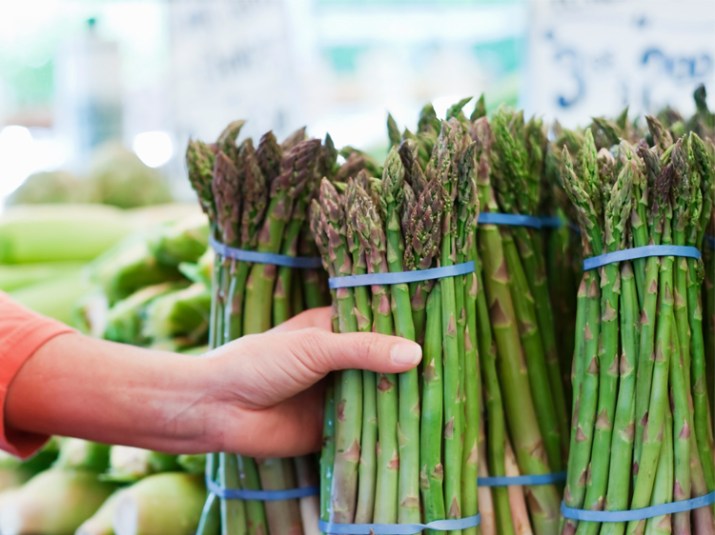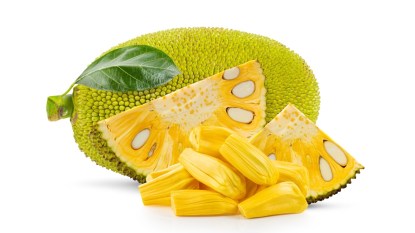No, You Shouldn’t Stop Eating Asparagus Because ‘It Gives You Breast Cancer’

If anyone you know is suddenly avoiding asparagus, it might have something to do with a new study that unfortunately has been misunderstood by several media outlets. In the February 2018 findings, researchers discovered that an amino acid called asparagine, which is found in the vegetable, might be responsible for the spread of breast cancer. Yes, on the surface this sounds quite alarming. But when you take a closer look at the study, you’ll realize there’s no need to throw away your beloved vegetables.
What is asparagine?
Asparagine is one of the approximately 20 amino acids that make up proteins in our food and in our bodies. Asparagine — which, yes, was indeed named after asparagus — can be found in any food that contains protein, including its namesake veggie, seafood, and poultry. Additionally, our bodies actually make asparagine, along with several other amino acids, on their own.
What does asparagine have to do with cancer?
The American Council on Science and Health reports that in the context of the original study, researchers found that an enzyme called asparagine synthetase — one of the enzymes that helps make asparagine — is a factor in whether a cancer patient’s tumor spreads to other parts of the body. It’s important to note here that the cancer patient in this study is a mouse, not a human. And in this mouse cancer patient, the researchers found that the more active this particular enzyme was, the better the mouse’s breast cancer was able to spread. So the scientists tried giving the mice an enzyme that destroys asparagine, feeding the mice a diet low in asparagine, and even “turning off” the gene encoding the enzyme in the mice. In all cases, the cancer was less likely to spread.
Interestingly enough, the drug called asparaginase, which the scientists used to treat the breast cancer in the mice, is already used to treat human children with acute lymphoblastic leukemia. “It’s possible that in future, this drug could be repurposed to help treat breast cancer patients,” said Professor Charles Swanton, Cancer Research UK’s chief clinician. “The next step in the research would be to understand how this translates from the lab to patients and which patients are most likely to benefit from any potential treatment.”
Should we try to limit asparagine?
Just because a diet low in asparagine could have helped the mice does not mean that it would help humans — even those who have cancer. Not only can asparagine be found in so many foods beyond asparagus — like seafood, poultry, and dairy products — our own bodies already produce asparagine on their own. Based on current evidence, breast cancer patients should not eliminate any food — including asparagus — without speaking to their doctors first. By the way, it’s worth noting that the word “asparagus” doesn’t even appear in the original study!
Is asparagus good for you?
Asparagus, like many vegetables, is chock-full of health benefits. For instance, asparagus is a good source of fiber, which can help you control your weight and aid in constipation. It’s also naturally high in folate, which helps the body form red blood cells. Additionally, it’s low in calories and a great way to add on to your daily servings of vegetables each day. An added bonus: Asparagus can be cooked a variety of different ways — and all are absolutely delicious.
We know what we’re having for dinner tonight!
Next, learn which foods can help you banish bloating in the video below:
More from FIRST
It’s Finally Safe to Eat Romaine Lettuce Again
Fabulous News: Cheese Is Good for Our Health
Kids Who Eat Fish Weekly May Have Higher IQs, Study Suggests













